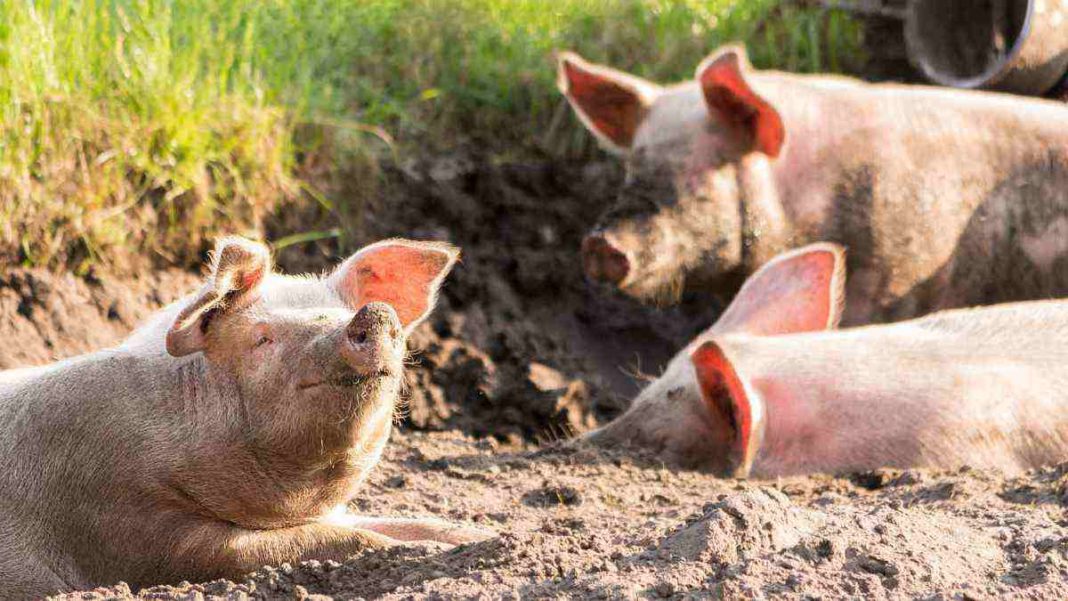CHINA: Chinese scientists have achieved a world-first by successfully growing kidneys containing human cells in pig embryos. This remarkable accomplishment holds the potential to revolutionize organ transplantation and address the persistent shortage of donor organs.
However, the breakthrough is not without its ethical concerns, as traces of human cells were also detected in the brains of the pigs involved in the study.
The study, published in the prestigious journal Cell Stem Cell, was conducted by researchers from the Guangzhou Institutes of Biomedicine and Health.
Their focus on kidneys was strategic, as these vital organs are among the first to develop in humans and are also the most commonly transplanted.
While previous attempts to grow human organs in pigs had met with limited success, this innovative approach has brought us a step closer to overcoming one of the most significant challenges in transplantation medicine.
Senior author Liangxue Lai remarked on the significance of their achievement, stating, “Rat organs have been produced in mice, and mouse organs have been produced in rats, but previous attempts to grow human organs in pigs have not succeeded. Our approach improves the integration of human cells into recipient tissues and allows us to grow human organs in pigs.”
This approach differs from recent breakthroughs in the United States, where genetically modified pig kidneys and even a heart have been transplanted into humans.
Instead of transplanting organs directly, the Chinese researchers sought to develop organs within pigs, a technique they believe offers unique advantages.
One of the primary challenges in creating such hybrid organs has been the natural dominance of pig cells over human cells.
To address this issue, the team used CRISPR gene editing to delete two genes crucial for kidney formation in pig embryos, essentially creating a specialized environment for human pluripotent stem cells to thrive.
These stem cells possess the remarkable ability to develop into various cell types, making them an ideal candidate for this innovative procedure.
Before implanting the modified embryos into surrogate mother pigs, the researchers nurtured them in test tubes containing nutrients beneficial for both human and pig cells.
In total, 1,820 embryos were transferred to 13 surrogate mothers. The pregnancies were terminated at 25 and 28 days to assess the progress of the experiment.
Remarkably, five embryos were found to have functionally normal kidneys for their stage of development, with human cells making up between 50 and 60 percent of the organ’s composition.
“We found that if you create a niche in the pig embryo, then the human cells naturally go into these spaces,” said co-author Zhen Dai in an explanation of their findings.
“In the brain and spinal cord, we only found a very small number of human neural cells, and there were none in the genital area ridge”.
However, the presence of even a small number of human cells in the pig brains raised concerns among experts about potential ethical implications.
Darius Widera, a professor of stem cell biology at the University of Reading, pointed out that the proportion of human cells in the generated kidneys is still not high enough.
The long-term goal of the research team is to optimize their technology for human transplantation, although they acknowledge that it is not currently ready for clinical use.
One limitation is that the pig-grown kidneys contained pig-derived vascular cells, which could pose a risk of rejection if transplanted into a human recipient.
Despite these challenges, the scientists are determined to press forward, with plans to extend their research to other human organs, including the heart and pancreas.
Also Read: Scientists Unearth Clues of Earth-like Planet Concealed in Solar System’s Kuiper Belt



